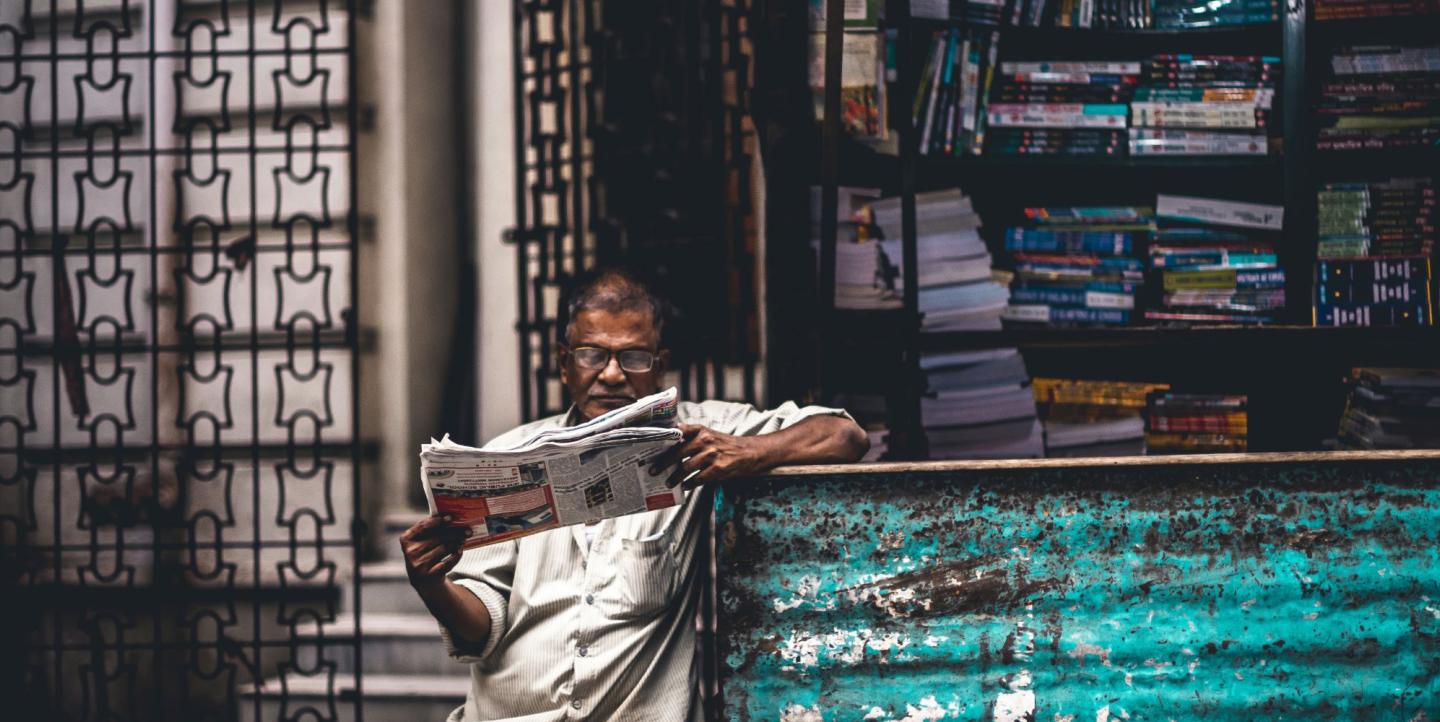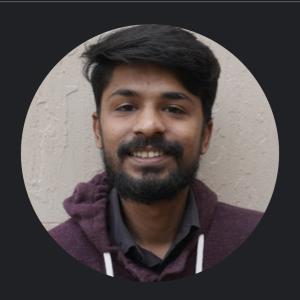Mis- and disinformation are among the most significant threats the world faces today, according to the World Economic Forum’s 2024 Global Risks Report. In India, the threat has been heightened due to the country’s consequential election earlier this year.
False information in India often originates on social media, and influencers, politicians, and, crucially, television news channels, help spread it more widely.
TV news, in particular, has contributed to the spread of misinformation, noted Pratik Sinha, co-founder of the Indian fact-checking platform, Alt News, which he started in 2017 with Mohammed Zubair. “TV media highlights a selective part of a story so that people don’t know the whole context and end up misinformed,” he said.
This selective reporting often affects marginalized communities. “TV media has played an enormous role in deepening stereotypes, telling half-truths that target specific minority groups.” Notably, just under 50% of Indians rely on TV for their news.
Misinformation has circulated in India around not just politics, but health, minority groups, and more. During the COVID-19 lockdown in 2020, Indian TV channels singled out the Tablighi Jama’at, accusing them of spreading the virus. On social media, the hashtag "#CoronaJihad" circulated, branding Muslims as virus spreaders.
This environment has driven citizen journalists and fact-checking organizations to step up their efforts to combat mis- and disinformation. Here’s how they’re doing it:
Citizen journalists step up
It can be challenging for fact-checking efforts to keep pace with the sheer volume of false information.
Citizen journalist Indrajeet Ghorpade has been carrying out his fight against misinformation through official complaints. He saw TV-fueled Islamophobia surge during COVID-19 and felt compelled to take action, especially given his experiences as a queer person in India. “I feel a deep sense of solidarity when I see another community being targeted and subjected to similar treatment,” he said.
Ghorpade filed complaints with the News Broadcasting and Digital Standards Authority (NBDSA), a self-regulatory body, which resulted in fines, content removal, and apologies in 90% of cases, he said. In 2021, he approached the Ministry of Information and Broadcasting (MIB) regarding a Marathi News report falsely claiming that homosexuality could be treated by naturopathic medicine. Although it took over a year, the channel eventually issued an apology following a Delhi High Court order, explained Ghorpade.
Independent journalist Meer Faisal has also reported on rising Hindu nationalism and violence against Muslims. “As a Muslim journalist, the constant risk of online harassment and the fear of being targeted by authorities make it crucial for me to meticulously verify every detail,” he said.
Faisal ensures that every piece of information that he is putting out is comprehensively fact-checked. “I have sources on the ground that help me verify the authenticity of any image or video that I post. Further, I travel myself sometimes in order to verify the information or use tools like Google Reverse Image [Search] to verify its authenticity,” he said.
Fact-checking initiatives
Alt News, one of India’s leading fact-checking platforms, relies on tips received through WhatsApp to identify mis- and disinformation. Sinha explained that his initiative often verifies stories through independent editorial processes, but the platform’s funding realities restrict its reach and ability to pursue legal action. “This limits our functioning in terms of the work we want to do,” Sinha said.
To combat disinformation more broadly, various organizations are collaborating. In March, the Misinformation Combat Alliance (MCA) launched the Deepfakes Analysis Unit, rolling out a tip line through which people can send videos for verification. This initiative is part of a larger effort by Meta and industry partners to curtail AI-generated misinformation, offering assistance in multiple languages.
Challenges to fact-checking in India
Despite the impact of fact-checking initiatives, and citizen journalists like Ghorpade, challenges remain. Some channels, including Republic TV and Sudarshan TV, have formed the News Broadcasters Federation (NBF), which is an independent industry body similar to NBDSA but more closely aligned with the ruling Bharatiya Janata Party, according to Ghorpade.
Unlike the NBDSA, the NBF has not provided hearing dates for complaints, making it challenging to hold its member channels accountable. Ghorpade also noted NBDSA’s limited power to impose fines. “The board cannot fine a channel more than 200,000 rupees for violating norms, which weakens its effectiveness,” he said.
Ghorpade believes that when organizations like NBF fail to penalize channels indulging in spreading misinformation, it becomes difficult to hold them accountable, presenting a further obstacle to fact-checking in India.
Recommendations for journalists
Journalists who spot mis- and disinformation on NBDSA-affiliated channels can file complaints within a week of the program airing. Fact-checking platforms also offer helpful guides for citizens, advising them to identify misinformation using tools like Google Reverse Image Search and by reaching out to subject matter experts or local authorities when needed.
As India grapples with a deluge of misinformation, the efforts of citizen journalists and fact-checkers are essential to combat this growing threat and promote accountability in the media.
Photo by Pranav Nahata on Unsplash.


